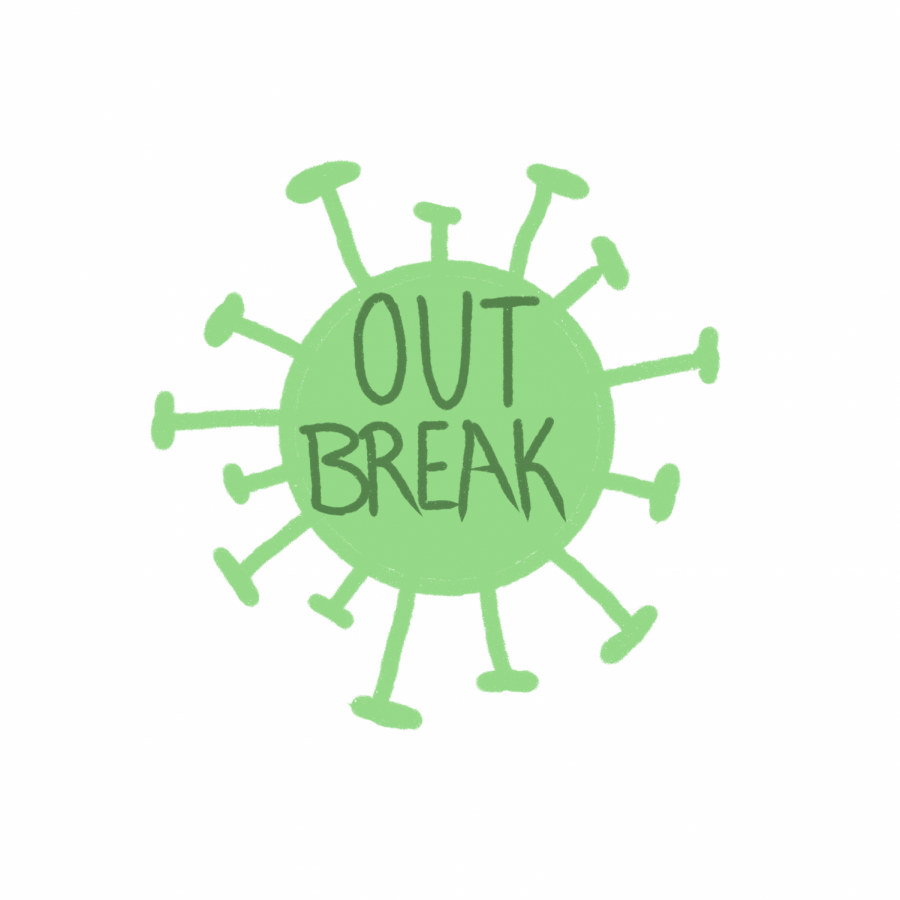The Outbreak | Dating at a distance
The Outbreak is a new blog describing the different ways the coronavirus pandemic has affected our lives.
I have floated through these past few weeks in a stupor, wrapped up in old-smelling quilts in my childhood bedroom, staring at the ceiling and grinding my teeth. Sometimes I can pull myself together enough to take a walk, during which I’ve adapted to automatically veering away from every other passerby. We’ll give each other wary looks — do you really have to be out right now? Have you been as careful as I am?
I find myself relaxing too easily into this new norm of passing interaction, and I wonder whether the habit will stick after the virus fades out. There’s been an abrupt, artificial end to closeness — that’s bound to leave a mark.
My boyfriend, for his part, will not leave his house. He’s immunocompromised and understandably terrified of what the virus could do to him. His backyard and his roof are the furthest he’ll go. I try to gently coax him out — My walks are really helping me stay sane. The risk is so low. He says maybe in a couple weeks. I am surprised, then, when I raise the idea of a socially distanced date and he says yes.
We plan it like middle schoolers. My mom can drive me there, and I’ll call her to come pick me up once it gets dark. We’re staying outside, since his roommate doesn’t want me in the house. And like middle school, my mom reminds me to keep a healthy distance. “No kissing!” she sternly tells me, her 21-year-old son, as I step out of the car.
In his backyard, a concrete slab boxed in by a cluster of Bloomfield rowhouses, my boyfriend has set out a bottle of white wine, two glasses and a family-size bottle of Purell. When we meet eyes, he has the startled look of a baby seeing its own foot for the first time. “Oh my god,” he says. “You’re the first person I’ve seen besides my roommates in two weeks.”
It takes everything in me not to hug him. Instead, I pull out a chair across from him at the glass patio table. I sit down and fold my hands in front of me. We stare at each other in silence for a moment. Then, without knowing why, I start giggling, at first under my breath and then hysterically, my face flushing hotter and my mind getting hazier the longer I go without stopping for air. He laughs unsteadily along with me, more out of politeness than anything.
“Sorry,” I say once I’ve gotten my bearings. “I really missed you.”
He pours us wine. It’s a clear evening, though windy, and the fence on his neighbor’s deck that’s come partway loose bangs loudly. I take too-frequent sips of my wine, finishing my glass before he’s even made a dent in his. We chat about our days, and the normality of the moment struggles against its total strangeness. Why aren’t you kissing? my caveman brain whines. He’s right there! There’s a cavity of hot air opening in my chest, a feeling of being pulled apart, as all the unfairness hits me at once. I know my problems pale in comparison to those of the rest of the world, but right now I am a toddler kicking and screaming, furious that we have to be this afraid, this alone, this far. I want to tell him everything, but I don’t know what “everything” is. I can’t even put a name to the emotion.
“I love you,” I say suddenly. I’d said it before, but never with this urgency.
“I love you, too,” he answers in a whisper. He looks at the ground. His foot inches forward under the table, and his scuffed boot comes to rest against my tennis shoe. He sniffs. I feel a seriousness hanging in the air that hadn’t been there before, not ever. He says, “Can we, just, like … hold hands, or something?”
He doesn’t have to ask twice. I take his hand in both of mine.
“I’m scared,” I say.
“Me too,” he says.
When I open my mouth again, it’s like a tap has been turned, and I, someone who struggles with the slightest hint of sincerity, spill my guts. I tell him about the daydreams I’d been having where we run off to a goat farm together and wait out the catastrophe with an endless supply of farm-fresh vegetables and nobody else for miles around. I tell him I can’t think or write or draw or even watch TV. I tell him I’m so terrified that I can’t even wrap my head around it, that I’ve just melted into a loose sack of blood with an elevated heart rate. He nods, strokes my knuckles with his thumb, jumps in with his own quarantine anecdotes, tells me he understands.
When my parents’ car rolls in at sunset to pick me up, we step forward as if to kiss goodbye before remembering. I recoil and wave instead. He waves back with something between a smile and a grimace.
Eli Savage is a native Pittsburgher, and one of two head layout editors at The Pitt News. Savage began at The Pitt News as a staff illustrator in spring...







